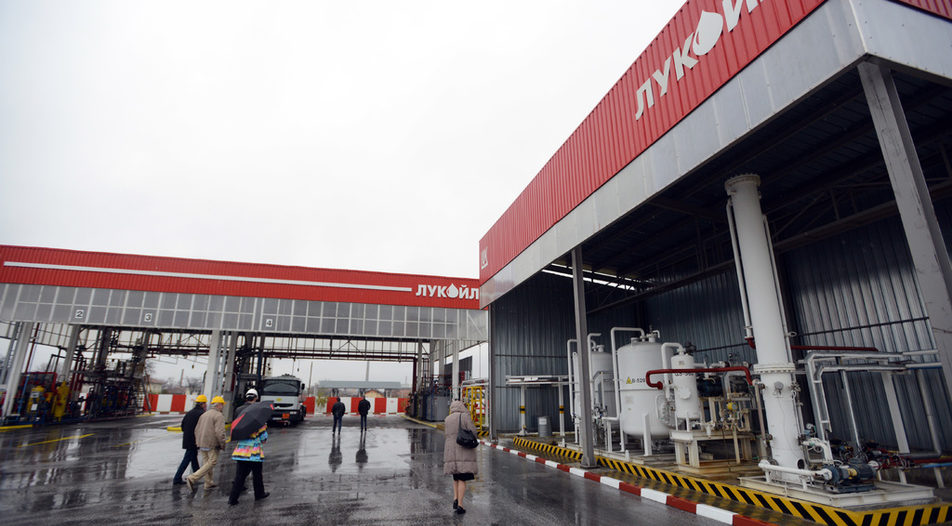The Bulgarian Commission for Protection of Competition (CPC) launched an investigation into suspected price fixing against seven fuel distributors at the beginning of 2016. The investigation was provoked by popular belief that retailers closely coordinate their marketing policies, which can be seen by the identical prices at their filling stations. The belief is rooted in the fact that since the beginning of 2012 petrol and diesel retail prices in Bulgaria without taxes and duties are among the highest in Europe.
During the investigation CPC claimed that it had found compelling evidence that Shell Bulgaria, Rompetrol Bulgaria, EKO Bulgaria, OMV Bulgaria, Petrol, NIS Petrol and Lukoil Bulgaria have been in collusion over their pricing policy. The seven companies were accused of keeping retail prices high, failing to respond adequately to a drop in oil prices.
The regulator also opened proceedings against oil refiner Lukoil Neftochim Burgas over abuse of dominant position. CPC pointed out that over the review period, prices of automobile fuel for the local market were higher than those for exports in identical conditions.
Over the course of the investigation CPC uncovered correspondence between employees of different fuel retailers clearly showing that they coordinate their pricing policies on an everyday basis. In October 2016 the Commission declared it had enough evidence to purse fines.
However, in March 2017 CPC reversed its opinion and found that there was neither a cartel on the fuel retail market, nor abuse of dominant position by Lukoil Neftohim Bulgaria.
According to the competition watchdog, there is strong parallelism in retailers prices, but the exchange of information among them concerned price information for previous periods, not the setting of prices for future periods. CPS recommended that retailers put an end to those talks. Later, in an interview with Capital newspaper the CEO of Lukoil Bulgaria (the company's wholesaler) Valentin Zlatev claimed that the detected e-mails with pricing information exchanged between one of his employees and a representative of another company were the result of "may be a love affair".
Lukoil Neftohim Burgas was cleared of suspected wrongdoing in May 2017. CPC ruled that the refinery sales prices for foreign clients are based on the international quotations and are not arbitrary. However, the refinery claims that its marketing policy for the domestic market is also based on Platts' quotations.
In the meantime, Russia's Lukoil also changed its position. Last year Lukoil CEO Vagit Alekperov declared that the company wants to sell its refining business in Europe, including in Bulgaria. Following the CPC announcement the company announced new investments in Bulgaria.
EU RAISES THE BAR FOR COAL POWER PLANTS
NEW TECHNICAL REQUIREMENTS OBLIGE ELECTRICITY PRODUCERS TO FURTHER REDUCE POLLUTING EMISSIONSThe European Union adopted a new set of technical requirements - Best Available Technologies (BAT), for the coal-fired power plants intended to further bring down the emissions of SO2 (the main cause of acid rain), NOX (which is smog's main cause) and mercury. The LCP BREF document was adopted in April over the opposition of eight member states, including Bulgaria. Bulgaria will be particularly affected, because its lignite coal is of very low quality producing significant emissions of SO2.
According to the industry representatives in Bulgaria, the local TPPs need to invest 1 bln euro in new installations to meet the new requirements, which will increase the cost of electricity production by around 30%. The problem is exacerbated by the fact that most coal-fi red electricity producers have just fi nished the modernization of their facilities in order to meet the previous EU mandated technical requirements. The industry associations urged the government to fight the new proposals but Bulgaria was outvoted.
The European Commission pointed out that the existing Bulgarian TPPs will not necessarily need to meet the new emission thresholds. "The competent authorities may grant derogations for an individual case where compliance with a BAT would entail disproportionate costs compared to the environmental benefi ts subject to the criteria set in the Directive".
It is still, however, unclear how long this derogation periods could last. The Bulgarian TPPs enjoyed five years of derogation period from the previous BAT requirements.
The Bulgarian Commission for Protection of Competition (CPC) launched an investigation into suspected price fixing against seven fuel distributors at the beginning of 2016. The investigation was provoked by popular belief that retailers closely coordinate their marketing policies, which can be seen by the identical prices at their filling stations. The belief is rooted in the fact that since the beginning of 2012 petrol and diesel retail prices in Bulgaria without taxes and duties are among the highest in Europe.
During the investigation CPC claimed that it had found compelling evidence that Shell Bulgaria, Rompetrol Bulgaria, EKO Bulgaria, OMV Bulgaria, Petrol, NIS Petrol and Lukoil Bulgaria have been in collusion over their pricing policy. The seven companies were accused of keeping retail prices high, failing to respond adequately to a drop in oil prices.












